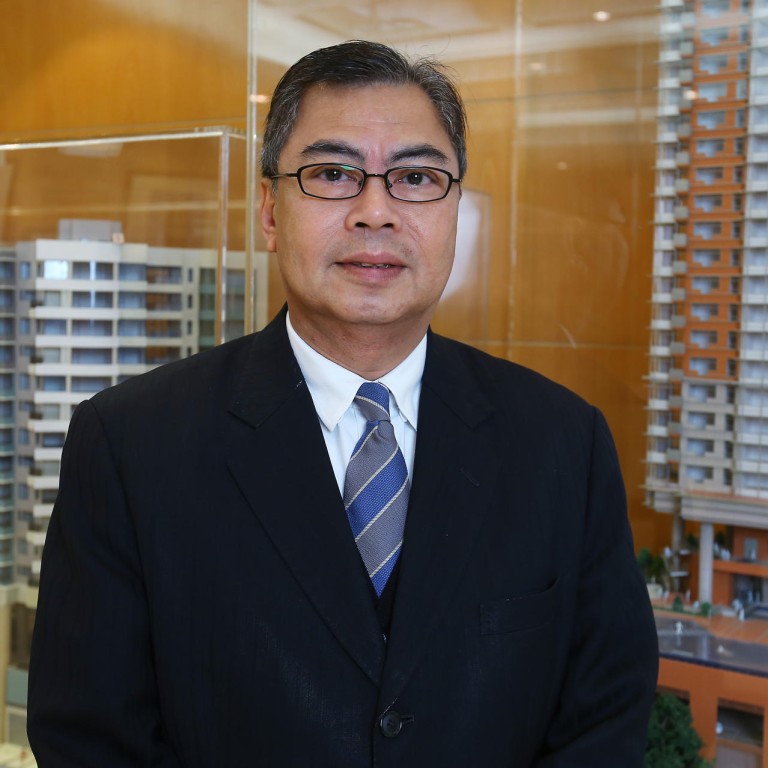
New | Hong Kong developer Asia Standard sees room for smaller players to survive
Asia Standard International executive director Phileas Kwan says having more small-sized plots on the market creates space for Hong Kong's smaller developers to survive and prosper
In a real estate market dominated by a handful of developers, smaller player Asia Standard International Group sees more investment opportunities as the government increases the sale of small plots of land for public sale. The firm's executive director Phileas Kwan Po-lam, who has witnessed the development of the Hong Kong property industry for about three decades, believes small developers have room to survive and he is optimistic about the outlook for the northwestern New Territories.
Yes, the government has put more small-sized plots on the market and that gives us more opportunities. I hope the government will continue to improve the infrastructure network in the New Territories, creating more available land for development.
Big developers have stronger resources and lower development costs because of their economies of scale. But we are more flexible in terms of changing strategy. Small developers can still survive. Unless they build luxury homes, big developers build mass housing like factories making products. Every product is the same. We hope to add value through designs, focusing on the finer details such as in kitchens or even the light switches. That will be appreciated by buyers.
We are one of the first developers building high ceiling apartments, that is, 10 feet four inches in height from floor to ceiling. It will make home occupiers more comfortable. You may not notice when those details are installed. But you feel uncomfortable without them. They are important.
We don't worry about newcomers. We care about the supply and demand for homes. So far, we still see strong demand from the formation of new families, increased expats from Western countries and from the mainland. We are optimistic about the outlook as supply is still limited.
As a developer with limited resources, picking right locations is very important. I am optimistic about the outlook for the New Territories, especially the northwestern part, like Tuen Mun, Yuen Long and Hung Shui Kiu. Home supply is still limited there, but infrastructure facilities are well planned. The prospects are good. On the other hand, the outlook for the northeastern part of the New Territories is less attractive. There will be a lot of home supply in districts such as Sheung Shui and Fanling.
I have a friend who is involved in the securities industry and his family is in Canada but he lived in Hong Kong for a long time. He insists on not buying property but putting his money in stocks. I encouraged him to buy a property to live in as the mortgage rate is as low as 2.15 per cent.
The rent he pays for his flat every month is even more than the monthly repayment he needs if he buys the flat. But in the short term, I believe some investors will prefer stocks rather than property. They will come back, as stocks are more volatile than property assets.
We plan to redevelop Monterey Court, Jardine's Lookout into a 22-residential-unit tower, with total floor area of 75,000 square feet, and a residential project in Hung Shui Kiu. In a joint venture with CSI Properties, we are building a luxury property in Shanghai. We hope to find large sites and build decent flats for buyers. We will not build flats as small as 177 sq ft.
Our hotels do not depend purely on tourists. For example, our Empire Hotel in Wan Chai is close to the Hong Kong Convention and Exhibition Centre and most guests are corporate clients who join the exhibitions.

